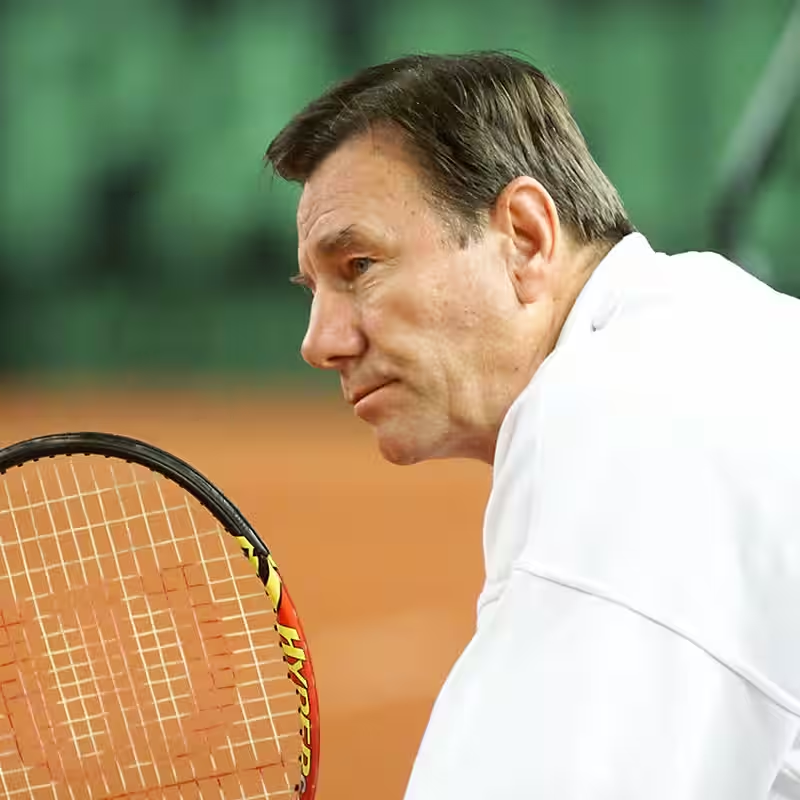Nikola Pilic, the Yugoslav tennis legend whose 1973 Wimbledon suspension triggered one of the most pivotal player uprisings in sports history, has died at age 86. His passing marks the end of an era for a man who not only shaped modern tennis as a player but also as a coach who mentored future greats like Novak Djokovic.
Who Was Nikola Pilic?
Born in what is now Croatia, Nikola Pilic stood 6-foot-3 and wielded a fearsome left-handed serve and forehand that made him a top contender during the turbulent transition from amateur to Open-era tennis. He reached a career-high world ranking of No. 6 and was the 1973 French Open runner-up, losing to Ilie Năstase in a dramatic final.
But it wasn’t just his on-court prowess that defined him. Pilic’s legacy is perhaps most deeply etched in the off-court rebellion that reshaped the balance of power between players and governing bodies—a moment that would echo through tennis for decades.
The 1973 Wimbledon Boycott: A Turning Point
In 1973, the Yugoslav Tennis Federation suspended Pilic for nine months after he declined to play a Davis Cup tie against New Zealand—citing a packed international schedule. Though the suspension was later reduced, Wimbledon officials upheld the ban, barring him from competing in the tournament.
What happened next stunned the tennis world: 81 male players, including 13 of the top 16 seeds, boycotted Wimbledon in solidarity. Among them were legends like Rod Laver, Ken Rosewall, and Arthur Ashe. The mass walkout wasn’t just about Pilic—it was a defiant stand for player autonomy.
This collective action forced the sport’s administrators to reckon with a new reality: players were no longer willing to be pawns in bureaucratic power games. The boycott accelerated the formation of the ATP (Association of Tennis Professionals) as a true player-led union and laid the groundwork for the athlete-centered sport we know today.
Pilic’s Coaching Legacy: The ‘Tennis Father’ of Champions
After retiring from competition, Pilic became one of the most influential coaches in European tennis. He holds the rare distinction of leading three different nations—Germany, Croatia, and Serbia—to Davis Cup glory.
Most notably, he was an early mentor to a young Novak Djokovic. The 24-time Grand Slam champion often referred to Pilic as “my tennis father,” crediting him with instilling discipline, tactical intelligence, and mental resilience during Djokovic’s formative years.
Timeline: Key Moments in Nikola Pilic’s Life
| Year | Milestone |
|---|---|
| 1939 | Born in Rijeka, Kingdom of Yugoslavia |
| 1970 | Wins U.S. Open doubles title with Pierre Barthès |
| 1973 | French Open finalist; triggers Wimbledon boycott |
| 1980s–2000s | Coaches Germany, Croatia, and Serbia to Davis Cup titles |
| 2025 | Passes away on September 22 in Rijeka, Croatia, at age 86 |
Why Pilic’s Story Still Matters
In an age where athletes advocate for their rights—from scheduling to prize money to mental health—Pilic’s 1973 stand feels remarkably modern. He didn’t just fight for himself; he ignited a movement that empowered generations of players to have a voice in their own careers.
As Novak Djokovic and others continue to navigate complex relationships with tennis federations and tournament organizers, they do so on a foundation Pilic helped build.




